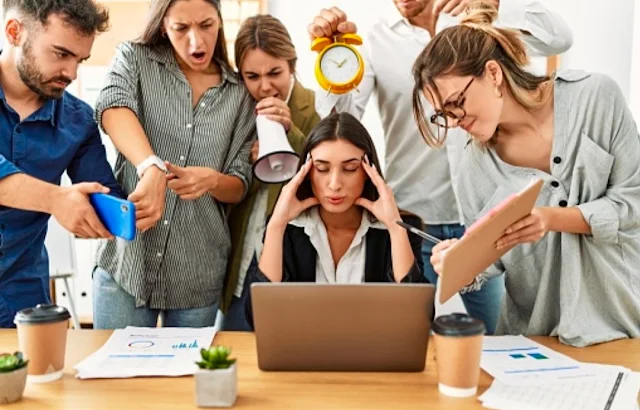What are antidepressant medications?
These drugs relieve the symptoms of depression. They first discovered in the fifth decade of the twentieth century and continuous use since then. Today, there are about thirty drugs available, which are divided into four major categories.
1. Tricyclic antidepressants
2. Monoamine oxidase inhibitors
3. Selective serotonin reuptake inhibitors
4. Serotonin-Noradrenaline Reuptake Inhibitors
How do these drugs work?
We don't know for sure, but we think these drugs increase the effectiveness of certain chemicals in the brain called neurotransmitters. It is generally believed that two chemicals, norepinephrine and serotonin, are closely related to depression.
Antidepressant drugs should be used in which diseases?
Moderate to severe depression
Severe anxiety and panic attacks (anxiety and panic attacks)
Obsessive Compulsive Disorder
Chronic pain
Eating disorders (diseases in which patients eat too little or too much)
Post-traumatic stress disorder
If you are not sure why you have been prescribed an antidepressant, ask your doctor.
How effective are these drugs?
Patients of depression after three month of treatment
50 to 65 percent of these people get much better when given an antidepressant
25 to 35of them should be given a pill of the same color.
but not having anti-depressant effect
People are much better by percentage
It may seem surprising that some people get better even when given an ineffective drug, but this is the case with all drugs that affect our emotions. It happens too. Antidepressant drugs are beneficial, but like most drugs, some of their benefits depend on how much we expect them to do.
Do antidepressant medications have side effects?
Yes.
Be sure to tell your doctor if you have or have had any medical conditions in the past. Different types of antidepressants have different side effects.
Tricyclics (eg amitriptyline, imipramine, duthiphene, clomipramine, etc.)
Common side effects of this group of drugs include dry throat, tremors in the hands, rapid heart rate, constipation, sleepiness and weight gain. If you have heart disease, it is better to avoid this group of antidepressants. In men, these drugs can cause sexual impotence. . Tricyclic antidepressants are dangerous in overdose.
Specific serotonin reuptake inhibitors (SSRIs) (eg fluoxetine, paroxetine, sertraline, stalopram, etc.)
When you start taking these medicines, you may feel nauseous and nervous for the first few weeks. Some medicines in this group can cause stomach upset, but this is less likely if you take them with food. It can also affect your sexual function. Some people have been reported to have seizures after taking these drugs, but this is rare.
Serotonin-nor-adrenaline reuptake inhibitors (SNRIs) (eg, venlafaxine)
The side effects of these drugs are similar to SSRIs, but you should not use venlafaxine if you have severe heart disease. It can also increase blood pressure, so keep your blood pressure checked. The need may arise.
Monoamine oxidase inhibitors (MAOIs)
Such antidepressants are rarely used today. If MAOIs are taken together with tyramine, blood pressure can become dangerously high.
If you start taking MAOIs . doctor will give you a list of foods that avoid with these drugs can't eat
This list of side effects may seem daunting, but most people have little or no side effects. you should be aware of these side effects so that you can recognize them if you experience them and tell your doctor about them. The most serious side effects, such as urinary obstruction, memory loss, falls, and difficulty thinking, usually do not occur in healthy young people. Many people have thoughts of harming themselves or killing themselves in depression.
Ask your doctor, these thoughts will go away on their own when your depression is cured.
Can operate machinery or I drive while taking antidepressants?
Taking certain antidepressants can make you drowsy and slow your reactions. This is more likely to happen with older medications. But there are certain anti-depressants that you can drive with. Remember, depression can also affect people's concentration and increase the risk of accidents. Be sure to consult your doctor.
Do people become addicted to antidepressants?
A person may not become addicted to antidepressants in the same way that they become addicted to alcohol, sedatives, or nicotine, for example.
You don't need to keep increasing the amount to maintain the benefits
But about a third of people who stop taking SSRIs experience stomach upset, flu-like symptoms, nervousness, dizziness, nightmares, nightmares, and electric shock-like sensations. Such painful symptoms may occur. Most people have very few painful symptoms when stopping SSRIs, but for some it can be very painful. Paroxetine and venlafaxine are the most likely to have these painful symptoms. By using It is usually better to gradually wean off antidepressants than to stop suddenly.
SSRIs, suicidal thoughts and younger people
There is some research showing that taking certain antidepressants increases suicidal thoughts (though not suicide rates) in children and teenagers, so in some countries people under the age of 18 SSRIs are not allowed. The UK's National Institute of Clinical Excellence says that fluoxetine is the only SSRI that can be given to people under the age of 18. There is no evidence that taking SSRIs increases the risk of self-harm or suicidal thoughts in people over the age of eighteen.
Can pregnant women take antidepressants?
It is best to take the least number of medicines during pregnancy, especially in the first trimester. Recently, there has been some research showing that babies of mothers who took antidepressants during pregnancy were less likely to have birth defects. There are more risks in taking the medication or there are more risks in not taking it. Fluoxetine is the safest antidepressant to take during pregnancy based on what we know so far.
There is also some evidence from research that newborns whose mothers have been taking antidepressants during pregnancy may have adverse effects at birth if the medication is stopped suddenly. It is likely to be more than the medicine.
Can breastfeeding women take antidepressants?
Many women develop depression after giving birth, which is called postnatal depression. This depression is usually cured with counseling and practical help. But if the depression becomes severe, mothers may feel fatigued, may stop breastfeeding, may not bond properly with the newborn, and may not develop properly. If not, then antidepressants may be beneficial.
What is the effect of the mother's anti-depressant medication on the breastfed baby?
Very small amounts of antidepressants are transferred from breast milk to the breast-fed infant. In babies older than a few weeks, the liver and kidneys begin to function perfectly. Since they are able to eliminate the drug from their body, they have little risk from the drug. Some antidepressants, such as sertraline, are excreted in breast milk in very small amounts. Be sure to consult your doctor in this matter. Given the many benefits of breastfeeding to mothers, it is best for mothers to continue breastfeeding while taking antidepressants.
How should antidepressant medications be taken?
A gradual increase is required over a few weeks. If you do not see the doctor again after the first time, you may be taking too little medicine. SSRIs do not need to be increased gradually. The dose you start with is usually the same dose you need to take later. Taking more than the prescribed dose of the medicine is not beneficial.
Don't worry too much if you have some painful side effects from the medicine at first. Mostly painful
if these are intolerable, consult your doctor immediately. If your condition worsens, it is important to tell your doctor so that he can decide whether this medicine is suitable for you. Be sure to tell your doctor if you develop anxiety or panic attacks.
Take the medicine daily. If you don't take the medicine daily, you won't get the benefit.
Wait for the drug to start working. These medicines do not start working as soon as you take the first dose
People's experience is that after starting an antidepressant, it takes one to two weeks for their benefit to begin, and it can take up to six weeks for the full benefit to be felt. Loss of benefit or relapse after benefit is the most common cause of depression.
Avoid drinking alcohol. Alcohol makes depression worse. If you take antidepressants.
If you drink alcohol along with taking it, you will feel lethargic and sleepy.
Keep medicines out of reach of children.
Do you overdose on drugs to harm yourself or end your life?
Coming up with ideas to take?
If this is the case, tell your doctor right away and give your medicine to someone else at home instead of keeping it with you.
If you notice any major changes in yourself after changing the dose of the medicine, tell your doctor Be sure to tell
How long will I need to take antidepressants?
Antidepressant medications do not cure depression or treat the cause of depression.
Even if no medication is given, depression goes away in most people after about eight months. If you stop medication before eight to nine months after starting it, there is a much higher risk of depressive symptoms returning.
The medicine should be continued for at least another six months after you start feeling well again. If you have had two or more episodes of depression, treatment should continue for at least two years.
Consider what may have triggered your depression. You may be able to take steps to reduce your risk of depression relapse.
What if I get depressed again?
Some people have recurring depression. Even after recovery, they may need to take medication for several years to prevent their depression from returning. Older people are at a higher risk of recurring depression.
Some people get depression back. Other medications, such as lithium, may be needed to prevent seizures. Talk therapy (psychotherapy) can also be beneficial in this regard.
How will taking these medicines affect my life?
Depression is very painful. This can greatly affect a person's ability to work and enjoy life. Antidepressant medications can help you recover quickly. They have no life-threatening effects other than mild side effects. People continue their work while taking these medicines
What if I don't take these medicines?
It's hard to say. It depends on why your doctor prescribed an antidepressant, how severe your depression is, and how long it has lasted. Most people's depression lasts about eight months even if they don't take any medication. After that it gets better. If your depression is mild, it may be possible to get better with treatment in addition to medication. Consult your doctor.


